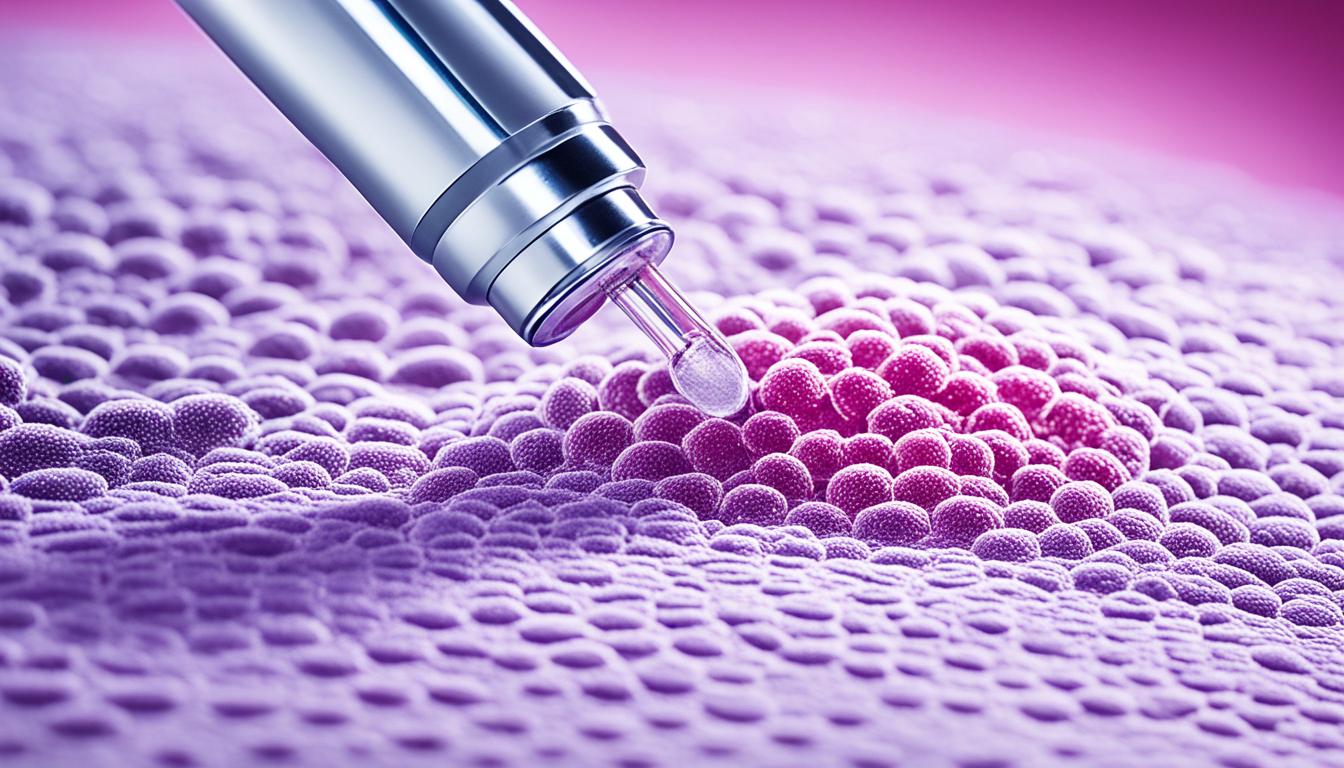Skin itchy disease makes your skin itches and feels irritated. It happens because of things like dry skin, allergies, dermatitis, and eczema. Several studies find that eczema affects children at different rates worldwide.
There are several ways to treat it. For example, applying lotions or creams directly to the skin can help. Doctors use guidelines based on what works best to help people. They might also use medicines that change how your immune system works to treat the disease.
Recently, using stem cells has become a new way to try to help with skin itchy disease. Stem cells can turn into different cell types, including those that help with skin repair. Although this approach looks promising, we need more studies to be sure it’s safe and effective. Stem Cell Therapy for Skin Itchy Disease
Key Takeaways:
- Skin itchy disease is characterized by itching and irritation of the skin.
- Causes of skin itchy disease include dry skin, allergic reactions, dermatitis, and eczema.
- Treatment options include topical therapies, guidelines for management and treatment, and biological treatments.
- Stem cell therapy is a potential advanced treatment for skin itchy disease, but more research is needed.
- Consult a healthcare professional for a proper diagnosis and personalized treatment plan.
Common Causes of Itching Without Rash
Itching without a rash can make you feel frustrated and uncomfortable. It’s usually linked to skin problems that also cause visible rashes. But, sometimes you itch without any change to your skin. Here are a few reasons why this happens:
- Dry skin: Dry skin, or xerosis, often leads to itching, especially as we get older. Without enough moisture, our skin can get really itchy. You can help by moisturizing daily and skipping those super hot showers.
- Bug bites: Getting bit by insects like mosquitoes can make you itch. This is because their saliva contains things that our body can react to. To feel better, try using anti-itch creams or taking antihistamines.
- Medication side effects: Some drugs might make you itch, like opioids or certain blood pressure pills. If you think your meds are the cause, talk to your doctor. They might be able to switch your prescription or offer tips to stop the itch.
- Nerve problems: It’s possible to itch due to nerve issues even without a rash. This kind of itching can be from things like neuropathy or shingles. Getting treatment for the underlying nerve problem often solves the itching too.
Figuring out why you’re itching with no rash is vital. If it doesn’t go away and it bothers you, see a dermatologist or doctor. They can help find the right treatment.
Itching Without Rash and Underlying Health Conditions
Feeling itchy without a rash might mean something more. There could be a health issue needing attention. It’s good to know the causes so you can get the right treatment.
Diabetes
Diabetes could be a reason for itchy skin without a rash. It can damage nerves, called diabetic neuropathy. This makes you feel itchy even though there’s nothing there. It’s due to faulty nerve endings that can’t send signals right (First source).
Kidney Disease
If you have advanced kidney disease, you might itch without a rash. Healthy kidneys filter out toxins that can make us itch. But if kidneys don’t work well, these toxins build up and cause us to feel itchy (Second source).
Liver Disease
Issues like cirrhosis or hepatitis can make you itch without a rash, too. When the liver doesn’t work right, it can’t process bile as it should. This leads to the body building up too much bile salt, making you feel itchy (Third source).
Skin Cancer
Itchy skin could also be a sign of skin cancer in rare cases. If you notice constant and odd itching, see a doctor. They can check if it’s something serious and needs treatment (Fourth source).
If you’re feeling itchy but don’t see a rash, seeing a doctor is key. They can find the cause and help you treat it. Dealing with the health issue properly can stop the itch and make you feel better.
We’re going to look at how to treat this itch with no rash. Different health problems need different solutions. Let’s find the best way to deal with your itch.
Conclusion
Itching without a rash is quite frustrating and can be caused by many things. It might be from dry skin or something more serious. It’s key to see a doctor to find out why it’s happening.
How you treat this itching depends on what’s behind it. If it’s because your skin is dry, using lotions can help. For health issues like diabetes, you might need special care to stop the itching.
Remember, some medicines can make you itch too. If you think this is happening, talk to your doctor. They can help you find a solution.
Help is out there. By getting to the root of the issue and treating it well, you can ease the itching. Always talk to a doctor for the best advice.

